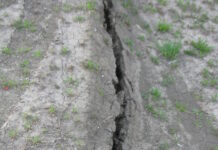Photo credit: DiasporaEngager (www.DiasporaEngager.com).
This week’s Torah reading of Eikev, follows the pattern of the previous three weeks.
Moses continues his review of the history of the previous 40 years. He retells certain events, such as smashing the Tablets of Stone and making a second set, and repeating the theme of the importance of following our Divinely-inspired way of life.
This week, we read the second chapter of the Shema, in which it says, “If you really listen to the commandments which I command you today, to love the Lord your God and to serve with all your heart and all your soul, then I will give the rains at the right time, the first rain and the latter rain and you will gather your corn and your wine and your oil and there will be grass in the fields for your animals to eat and be satisfied” (Chapter 11, verse 13).
This raises one of the controversial issues of the Torah, and indeed all religions — reward and punishment. It implies that in physical terms, the rains come and go based on how we behave, and that God’s relationship to us is dependent on our relationship to God. Yet, if we are rational and look at history, we can see that it doesn’t always appear to be the case. The whole issue of why good people suffer, and bad people seem to thrive, has always presented a major theological challenge to every religion.
One way of dealing with this challenge is to say this is not about each one of us individually and what we go through in life, but it’s about the nation and whether the nation survives or not. There is no guarantee that there won’t be warfare. After all, the invasion of Canaan was warfare. But we have been and are engaged in an existential struggle for survival. Sometimes we win and sometimes we lose. But even in this existential struggle for survival, we are still bound by the laws of the Torah.
I have always tried to balance different moral positions both as a Jew and as a citizen of the world. I’ve accepted the principle of “doing as you would be done by,” and always making sure that whatever I do is ethical and can be justified by halacha. One of the biggest problems we have had morally, both in the Torah and to this very day, is the question of zealotry. When can you break laws? And indeed, there is much debate and confusion over retaliation and conflicting religious positions, absolute and moderate.
With all the pain and suffering that Israel has gone through this past year, we have prided ourselves on the fact that our war record is far superior to any other example of a country facing an existential threat and invasion. If there are non-combatant casualties or human shields, these are the painful and reluctant result of the way our enemies have fought us.
Once upon a time, Israel was united in rejecting the extremism of Kahanaism. In recent years, that ideology has made a frightening comeback as attacks on civilians have increased by Arab nationalists. So, it was with great relief this week that the Prime Minister of Israel, Benjamin Netanyahu, came out forcefully condemning the attitude of those outwardly religious young men who rampage through Arab villages killing people.
Even so, that’s a matter of shame to me — that people calling themselves religious Jews, act in a way that I cannot morally accept. Thank God they are a minority. Of course, the world press wants to make them out to be the majority, but that’s the perversity and bias of most of the world’s press.
But I don’t want to be associated with people who act outside of the law. The issue of how prisoners are treated is not for mob justice or mob violence, but the law. As the Torah and the Talmud tell us, God cares about all God’s creatures. We all came from the same source, and should be treated as such. If we ignore the Torah, we suffer the consequences.
Jews have been lynched by mob justice. And so, I repeat, do as you would be done by.
The author is a writer and rabbi, currently based in New York.
Source of original article: Jeremy Rosen / Opinion – Algemeiner.com (www.algemeiner.com).
The content of this article does not necessarily reflect the views or opinion of Global Diaspora News (www.GlobalDiasporaNews.com).
To submit your press release: (https://www.GlobalDiasporaNews.com/pr).
To advertise on Global Diaspora News: (www.GlobalDiasporaNews.com/ads).
Sign up to Global Diaspora News newsletter (https://www.GlobalDiasporaNews.com/newsletter/) to start receiving updates and opportunities directly in your email inbox for free.






























